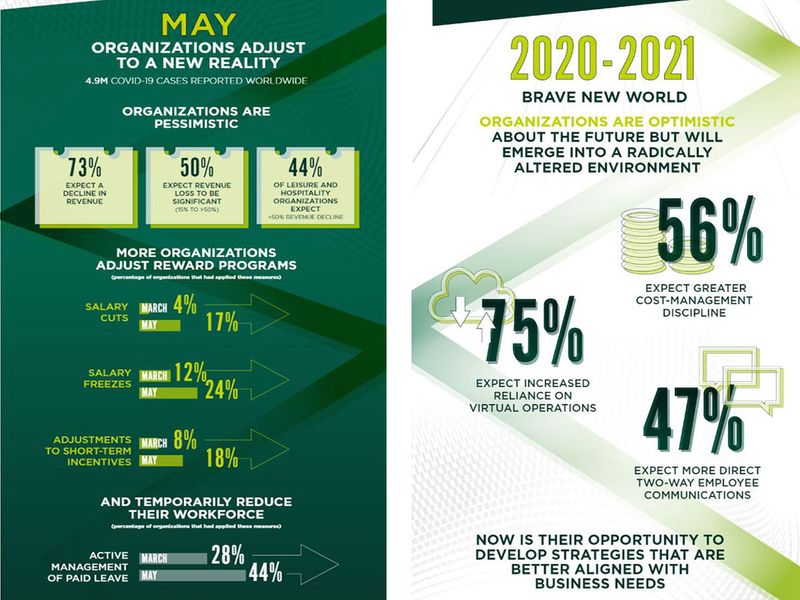Dubai: Go easy on salary expectations, but expect more flexibility on benefits. That’s what job prospects are hearing more of from HR managers as UAE’s employment scene picked up slightly during the final quarter of what has been one torrid year.
Jobs are once again being created – and filled – for senior executive roles, and also at the entry level for positions related to logistics and in ecommerce, the two categories that had the highest number of new hiring all through this year.
Interesting, according to Korn Ferry International, the consultancy, hospitality too is back to selective recruiting, despite being one of the worst hit sectors following the pandemic. “We will see a rebound in hiring activity in hospitality and retail as we see higher spending by local residents along with higher tourist in-flows,” said Vijay Gandhi, Regional Director at Korn Ferry.
“We have seen major job cuts in 2020 and it is highly unlikely that organisations will back-fill all these roles in 2021. However, the silver lining is we saw a strong recruitment market in the last 12 weeks.
“The major change we are witnessing in salary structures is consolidation of benefits and improving the incentive plans by reducing targets.”
Salary meltdown
According to the recruitment tracking portal GulfTalent, in the nine months since the pandemic struck, there has been a 24 per cent drop in salaries advertised compared to a year earlier. And yes, some categories saw steeper falls, and it is unlikely that employers will be moving fast to push salaries back to 2019 levels in a hurry.
Not so fast

Image Credit: Virendra Saklani/Gulf News
Some in the recruitment space say the pace of new hiring is still uneven. Yes, logistics and ecommerce jobs are filled as soon as vacancies arise, but retail is still far removed from any full-scale recovery. Some of the biggest retail groups still have a sizeable percentage of their workforce on furlough.
Real estate positions, especially at the senior level, too could be under threat heading into 2021. “If real estate market does not see some improvement in the first quarter, there could be further cuts,” said an industry source. “Already, consolidation at some of the biggest developers have placed certain positions under direct threat of being made redundant.”
Oversupply of skills
Construction is another sector that could likely see another tough year. Ongoing projects are fully stocked in terms of personnel needed on site. Industry sources say more redundancies await for those in mid-level positions.
Travel and tourism is another where an immediate recovery on jobs is rated as highly unlikely.
Pad up incentives
Gandhi at Korn Ferry says while it’s going to be difficult matching salary expectations, candidates eyeing a new job will see “hiring managers revisiting other parts of the compensation package such as additional vacation days, flexible working hour schedules, and advancing career prospects from where the candidate is today,” he added.
“The candidates will have to strike a balance between base salary expectations and intangible reward elements… which will help their careers in the long-run. Career is a journey and not a race which can only sail by taking on the right role at the right point in your professional life.”
No increase
Most in the workforce are realistic enough to know what their chances are to get a salary hike, or a higher compensation if they were to switch jobs now. Unless they have sure-shot credentials – say, a data expert for a position in ecommerce or someone with the right value-added credentials in healthcare – chances of a new job materialising are thin.
As said earlier, traditional job creating sectors such as retail is still under extreme pressure. Businesses are more likely to make do with the reduced headcounts, or recruit selectively.
In a global survey by Korn Ferry, it found that a third of organizations are planning increases to less than 50% of their employees. And more than three times as many organizations as last year were planning to skip increases altogether.
Only 35 per cent of survey participants said that 100 per cent of employees will be eligible for increases in 2021.
Restoring
But more companies are willing to go back to paying the full salaries after they effected an average 30 per cent cuts from April.
“It’s highly unlikely that companies will stick with these pay cuts – they were meant to address a particular problem in the short-term,” said one recruitment consultant. “Organisations shouldn’t see it as a permanent solution.
“If they still can’t get the finances right, then further job cuts will be the only answer.”

Image Credit: Supplied


